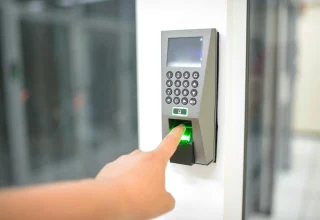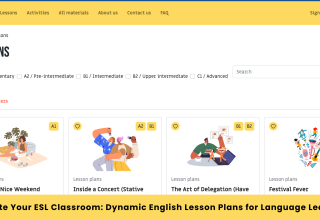As an online coach, you may have heard about high-ticket sales, but are unsure if it’s the right strategy for your business. In this article, we’ll explore why it’s time to start selling high-ticket and the benefits of doing so. We’ll also demystify the myths surrounding high-ticket sales and provide tips for identifying your ideal clients, developing a sales funnel, creating an offer that resonates with your audience, pricing your offer, and closing high-ticket sales.
Introduction to High-Ticket Sales in Online Coaching
High-ticket sales refer to selling premium products or services at a high price point. Online coaches can offer high-ticket coaching packages, courses, or mastermind groups. The benefits of high-ticket sales include higher revenue, fewer clients for the same amount of income, and the ability to attract more committed clients.
In the online coaching world, high-ticket sales are becoming increasingly popular, and for good reason. Coaches are able to provide a more personalized and in-depth experience for their clients, resulting in higher success rates and client satisfaction. By focusing on high-ticket sales, coaches can also work with fewer clients and have more time to focus on delivering high-quality service.
Understanding the Benefits of High-Ticket Sales for Online Coaches
There are several benefits of high-ticket sales for online coaches. Firstly, coaches can earn more revenue per client. By offering high-ticket coaching packages, coaches can charge more for their services and generate more income with fewer clients. This enables coaches to work less and enjoy more free time, while still earning a comfortable income.
Secondly, high-ticket sales can attract more serious and committed clients. When clients invest a significant amount of money in coaching services, they are more likely to be committed to the process and take it seriously. They are also more likely to be actively engaged in the coaching process, which can lead to better results and a higher success rate.
Finally, high-ticket sales can help coaches build a reputation as an expert in their field. When coaches charge a high price for their services, they are perceived as experts and authorities in their niche. This can lead to more referrals, higher visibility, and increased opportunities for speaking engagements, collaborations, and partnerships.
Demystifying the Myths of High-Ticket Sales
There are several myths surrounding high-ticket sales that may be holding you back from implementing this strategy. One common myth is that high-ticket coaching is only for established coaches with a large following. However, this is not true. Even if you’re just starting out, you can still offer high-ticket coaching packages by positioning yourself as an expert in your niche and delivering high-quality services.
Another myth is that high-ticket coaching is only for certain niches or industries. This is also not true. High-ticket coaching can be offered in any niche or industry, as long as there is a demand for your services and you can deliver results for your clients.
Finally, some coaches believe that high-ticket coaching is too expensive for their clients. However, this is not necessarily true. While high-ticket coaching is more expensive than other coaching packages, it can also provide more value and better results for clients. Many clients are willing to invest in high-ticket coaching if they believe it will help them achieve their goals.

How to Identify Your Ideal High-Ticket Clients
To sell high-ticket coaching packages, you need to identify your ideal clients. These are clients who are willing to invest a significant amount of money in coaching services and are a good fit for your coaching style and niche. Here are some tips for identifying your ideal high-ticket clients:
- Identify your niche: To attract high-ticket clients, you need to be clear about your niche and the specific problems you solve for your clients. This will help you attract clients who are looking for the solutions you offer.
- Understand your client’s pain points: To sell high-ticket coaching, you need to understand your client’s pain points and the outcomes they are looking to achieve. This will help you create a coaching package that resonates with your clients.
- Identify your ideal client profile: Create a profile of your ideal client, including their age, gender, income level, education, and interests. This will help you target your marketing efforts to attract the right clients.
- Research your competition: Look at what other coaches in your niche are offering and the prices they are charging. This will help you determine your unique selling proposition and how you can differentiate yourself from your competition.
Strategies for Developing a High-Ticket Sales Funnel
A sales funnel is a step-by-step process that takes your potential clients from initial contact to making a purchase. Here are some strategies for developing a high-ticket sales funnel:
- Create a lead magnet: A lead magnet is a free resource that you offer to potential clients in exchange for their contact information. This can be a free e-book, a video series, or a webinar. Your lead magnet should be related to your coaching services and provide value to your potential clients.
- Nurture your leads: Once you have a potential client’s contact information, you need to nurture them with valuable content and build a relationship with them. This can include sending them weekly newsletters, inviting them to free training sessions, or offering them a free coaching session.
- Offer a discovery call: A discovery call is a free consultation call with a potential client. This is an opportunity for you to learn more about their goals and challenges and determine if they are a good fit for your coaching services.
- Present your high-ticket offer: If the potential client is a good fit for your coaching services, you can present your high-ticket offer. This offer should be tailored to their specific needs and goals and provide a clear outline of the coaching package and the benefits they will receive.
Creating a High-Ticket Offer That Resonates With Your Audience
To create a high-ticket offer that resonates with your audience, you need to understand their pain points and the outcomes they are looking to achieve. Here are some tips for creating a high-ticket offer:
- Focus on outcomes: Your high-ticket offer should focus on the outcomes your clients will achieve, rather than the process. For example, if you’re a weight loss coach, you should focus on the benefits of losing weight, such as increased energy, improved health, and higher self-esteem.
- Provide a clear value proposition: Your high-ticket offer should provide a clear value proposition and demonstrate the benefits of working with you. This can include testimonials from previous clients, case studies, or a free trial period.
- Offer customized solutions: Your high-ticket offer should be tailored to your client’s specific needs and goals. This can include personalized coaching sessions, customized meal plans, or one-on-one support.
- Include bonuses: To sweeten the deal, consider including bonuses with your high-ticket offer. This can include additional coaching sessions, access to a private Facebook group, or exclusive resources and content.
Tips for Pricing Your High-Ticket Offer
Pricing your high-ticket offer can be challenging, but it’s important to get it right. Here are some tips for pricing your high-ticket offer:
- Research your competition: Look at what other coaches in your niche are charging for similar services. This will give you an idea of the market rate and help you determine a fair price for your services.
- Consider your experience and expertise: If you have years of experience and specialized expertise, you can charge more for your services. However, if you’re just starting out, you may need to charge less until you build up your reputation.
- Consider the value you provide: Your high-ticket offer should provide significant value to your clients. Consider the time and effort you put into delivering your coaching services and the outcomes your clients will achieve.
- Test your pricing: If you’re unsure about your pricing, consider testing different price points with a small group of clients. This can help you determine the optimal price for your services.
Overcoming Objections and Closing High-Ticket Sales
When selling high-ticket coaching packages, you may encounter objections from potential clients. Here are some common objections and how to overcome them:
- “It’s too expensive”: If a potential client says your coaching package is too expensive, remind them of the value they will receive and the outcomes they will achieve. You can also offer a payment plan or a discount for paying in full.
- “I don’t have the time”: If a potential client says they don’t have the time for coaching, remind them of the benefits of investing in coaching services, such as increased productivity and better time management.
- “I’m not sure if it will work”: If a potential client is unsure if coaching will work for them, provide testimonials from previous clients and case studies. You can also offer a free trial period to give them a taste of your coaching services.
Conclusion: Taking Your Online Coaching Business to the Next Level
By offering high-ticket coaching packages, you can take your online coaching business to the next level. High-ticket sales can provide a higher income, attract more committed clients, and build your reputation as an expert in your niche. To succeed with high-ticket sales, you need to identify your ideal clients, develop a sales funnel, create an offer that resonates with your audience, price your offer appropriately, and overcome objections. By following these tips, you can start selling high-ticket and take your online coaching business to the next level.










